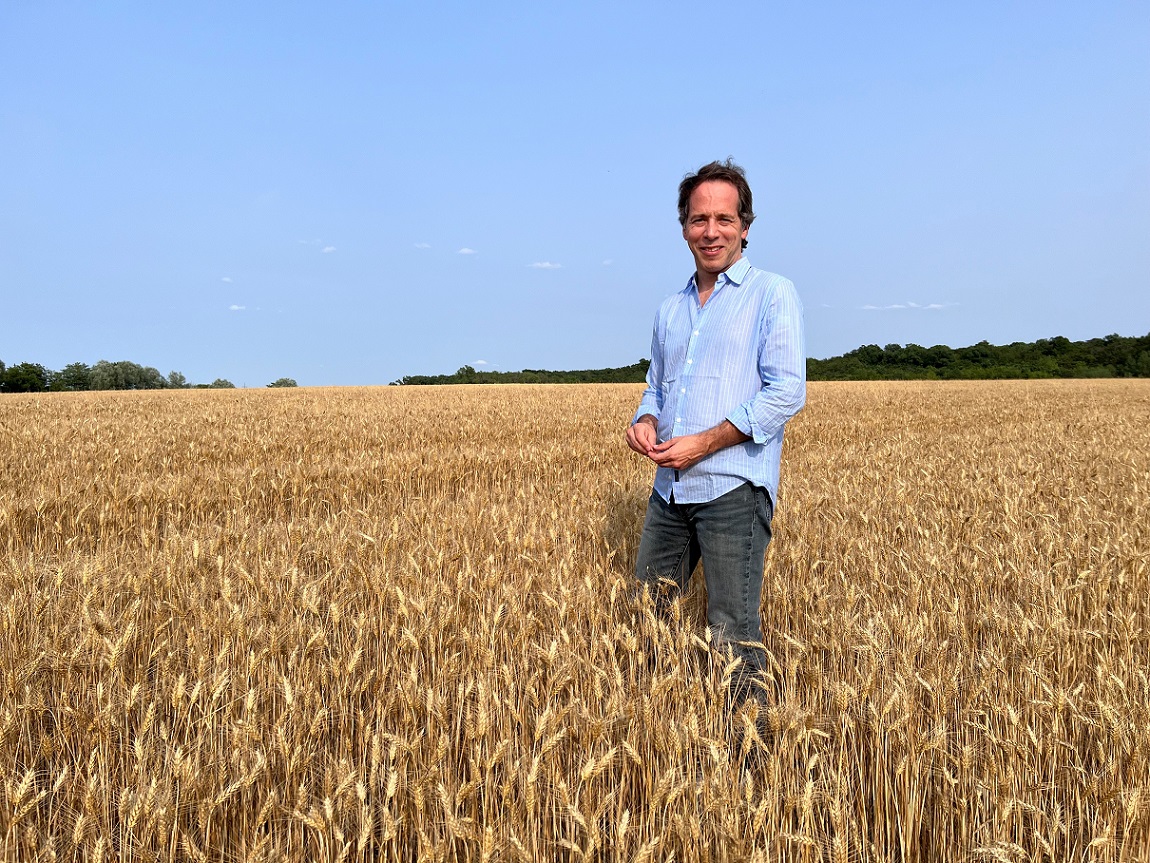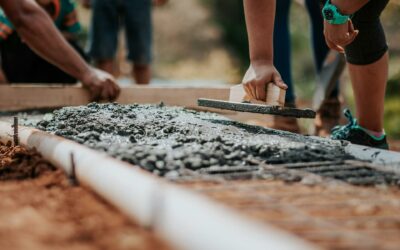With Roberto Vitón, Founder and Managing Director of Valoral Advisors
Let’s start with some basics: what’s your name, where are you living, what did you study and what kind of work do you do?
My name is Roberto Vitón, and I live in Luxembourg since 2008. Previously I lived in the United Arab Emirates, the United States, and Argentina, where I was born.
I studied Economics and Finance, and since early in my professional life, I was attracted to the food and agriculture sector and to the opportunities to connect the investment world with this critical sector.
Can you tell me more about Valoral Advisors and its mission?
I founded Valoral Advisors in 2010, and since then, our mission has been to help investors capitalize on food and agricultural investment opportunities while contributing to the sustainable development of the sector.
In the day-to-day, this translates into working with a broad range of investors, including family offices, independent asset managers, and institutional investors, including pension funds, sovereign wealth funds, and development finance institutions.
The advisory work takes many forms depending on the needs and interests of our clients, but it may typically cover the following four areas: strategy advisory services, transactional services, management services, and market research, covering the broad food and agriculture value chain and through the lens of different asset strategies including real assets, private equity and venture capital, among others.
What role does sustainability play in your work in Valoral Advisors, and vice versa? And to that extent, how do you define and approach sustainability in investment advisory?
I believe that no industry is as relevant to the successful implementation of the U.N. Sustainable Development Goals as agriculture.
Almost every single SDG has some linkage to agriculture: the development of regenerative agricultural practices, the efficient use of water, the protection of biodiversity, the development of rural areas, and the reduction of food loss and food waste are among key challenges and opportunities to achieve this agenda.
In this context, investing in the agriculture industry can play a pivotal contributing role, unlocking private capital to invest aligned with the SDGs and, in that process, providing solutions to the many challenges we face.
As investment advisors, we embrace the sustainable development of the food and agriculture sector with a focus on social responsibility, environmental soundness, and economic viability.
This means that we proactively look for investment opportunities that align well with a series of specific impact outcomes that our clients are more interested in. This becomes then an integral component of our broader assessment.
But this is more than checking boxes: the sustainability imperative in the food and agriculture sector is also about realizing that businesses along the value chain are already facing severe risks arising from climate change, degraded natural resources, higher operating costs, etc., and that working toward a more sustainable food production system is beneficial also for the long-term performance.
How did you come to focus on the food and agricultural investment sector within your work? What makes it special, in your opinion?
We have been in the farming sector for many generations with my family. Today we continue to do farming in the central area of Argentina, growing several cereals and oilseeds. It was through this early experience that I got my passion.
I could tell you all the relevant numbers of what agriculture means for our world, but in the end, what makes it special to me is the connection to nature, it is the freedom and freshness that you can find in the countryside and the joy of producing the food that our planet provides.
What would be the impact of your work on the daily lives of people like those in the Komoneed community?
I realize that the global food and agriculture investment space remains a niche in the immense financial universe and that most people are not aware of the challenges and opportunities in our industry.
So, I like to think that we can continue raising awareness and creating the conditions for collaboration between different stakeholders who have an interest in our sector, in particular as it relates to all the sustainability efforts underway.
Can you tell me about some exciting developments you observe in your industry, such as perhaps carbon sequestration or others? How do you assess these will impact the further evolution of the industry?
I have been following our industry for almost twenty years, and I have seen many developments. It is critical to differentiate what can be a persistent and transformational opportunity vs. what are fancy topics which quickly go out of fashion.
I believe that we are entering a new phase in the evolution of the agriculture industry when soil fertility and agrobiodiversity will take a central role in how we invest and produce.
In this context, regenerative agriculture – a system of farming principles and practices that seeks to nurture and restore soil health and fertility, protect the climate and water resources and biodiversity, and enhance farms’ productivity and profitability – is gaining much interest. Regenerative agriculture has the potential to reduce GHG emissions and increase carbon sequestration, but it goes well beyond that.
What would you say are the particularities of agricultural investments in Latin America, what distinguishes them from European businesses for instance?
We have the privilege of working all around the world. However, most of our work takes place in Europe and Latin America. I would say that Latin America is the global powerhouse in food production, producing and exporting the largest net surplus of food to the world and with more growth ahead.
Europe, in contrast, is the world’s largest food consumption market in the world when seen as a single market, with multiple trends around changes in consumer preferences. So, in a way I could say that the two regions can complement very well!
Based on your work experiences and sustainability knowledge, what do you personally do on a private scale to be more sustainable?
Many of the opportunities in the global food and agriculture sector to become more sustainable apply to our daily lives. We intend to buy more local food to support local farmers and reduce the carbon footprint.
We also try to reduce the use of packaging whenever possible and be more conscious about the food we buy to reduce food waste. We also try to have a balanced diet, incorporating more pulses and fibers. There is definitely more to do!
Building onto that, what is your recommendation for others that want to be more sustainable but are unsure of what has the biggest impact?
Well, I’m not the technical expert that can point to actions that have more or less impact. I believe it is great to start with small actions and make them a habit – and move the next one and so on.
What else would you like to share with the Komoneed community? What should be their key takeaway from this interview?
The food and agriculture sector is a revolutionary industry. Over time, our sector has evolved to overcome different challenges.
As we transit this decade, it becomes evident again that innovation, including technological advances, will become a major driver to building more sustainable and efficient food production systems.
I believe we are in the early inning of a new transformation, and this will happen in front of our eyes. So, let’s be proactive about what each of us can do!






Thank you very much Max!
Yes, the first article we also read (saying it ourselves doesn’t sound very humble) shows a clear link between investments and practical sustainability
Yes, and in a couple of days, you can also read about real education in schools about sustainability
this article on the global food and agriculture investment space is eye-opening! I never thought about sustainability in investment advisory before. #FoodForThought
Im glad you found the article interesting, but personally, I think the potential for innovation in the global food and agriculture investment space is vastly overrated. There are too many challenges and limitations that prevent true transformation.
Ive checked out Valoral Advisors, and they seem to have a comprehensive approach to sustainability in investment advisory. They focus on integrating environmental, social, and governance factors into their investment strategies. Its worth exploring their website to get more details.
Im glad you found this article eye-opening, but lets not forget that the global food and agriculture industry is riddled with challenges. While Valoral Advisors may have good intentions, actions speak louder than words. Lets hope they truly prioritize sustainability and dont just use it as a marketing ploy.
this article on the global food and agriculture investment space is mind-blowing! Cant wait to learn more about Valoral Advisors and their mission. Sustainability is key in this field, how do they approach it?
Valoral Advisors is committed to sustainability in food and agriculture investment. They prioritize responsible practices, eco-friendly solutions, and support for local communities. Check out their website for more details on their approach. Its refreshing to see a company prioritizing the future of our planet!
I think Valoral Advisors is doing great work in the global food and agri investment space. Sustainability is key in todays world!
I couldnt agree more! Valoral Advisors truly understands the importance of sustainability in the food and agri investment sector. Their commitment to making a positive impact in todays world is commendable. Keep up the great work!
this article on the global food and agriculture investment space is mind-blowing! Im impressed by Roberto Vitóns work with Valoral Advisors. Sustainability is crucial, but how do they define it in investment advisory? 🌱🤔
I completely agree! Roberto Vitóns work with Valoral Advisors is truly impressive. When it comes to defining sustainability in investment advisory, Valoral focuses on long-term value creation, environmental stewardship, and social responsibility. They understand that sustainable investments not only benefit our planet but also contribute to the overall growth of the global food and agriculture sector. 🌍🌱
this article on the global food and agriculture investment space is mind-blowing! Who knew there was so much innovation happening in this industry?
I couldnt agree more! The advancements in the global food and agriculture investment space are truly remarkable. Its fascinating to see how innovation is shaping the industry and addressing the challenges we face. This article is a great eye-opener!
Im not really sure what to think about the global food and agriculture investment space. It seems like a complicated industry!
I totally get where youre coming from! The global food and agriculture investment space can be a bit perplexing. But hey, thats what makes it exciting, right? Dive in, do your research, and you might just uncover some hidden gems!